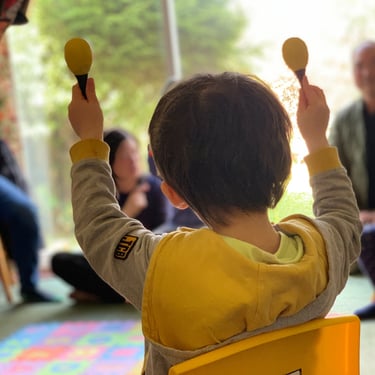The Healing Power of Harmony: How Music Improves Mental Health
In a world that often seems like a whirlwind of stress, anxiety, and uncertainty, it's reassuring to know that there's a powerful and accessible tool that can help us navigate these challenges: music. Beyond its undeniable ability to entertain and inspire, music has been increasingly recognized as a potent force in improving mental health. Whether you're strumming a guitar, humming your favorite tune, or just passively listening, music has a profound impact on our psychological well-being.
A Symphony of Emotions
Music has the remarkable ability to tap into our emotions. We've all experienced the way a song can lift our spirits when we're down, or offer solace when we're feeling overwhelmed. This isn't just a subjective feeling; it's science. Music triggers the release of neurotransmitters like dopamine, which is often referred to as the 'feel-good' chemical. This flood of positive neurochemicals can help reduce feelings of depression and anxiety, providing an immediate emotional boost.
Stress Reduction
In a modern world brimming with daily stressors, we often need an escape from our worries. Music offers an excellent means of relaxation. The rhythm, melody, and harmonies in music can lower cortisol levels, which are associated with stress. This results in a calmer, more relaxed state of mind. Whether it's through classical compositions or a playlist of your favorite songs, music serves as a soothing balm for frazzled nerves.
Enhancing Cognitive Function
Beyond the emotional impact, music can also enhance cognitive function. For instance, research suggests that learning to play a musical instrument can boost memory, problem-solving skills, and even increase IQ. Music's power to stimulate cognitive abilities makes it an invaluable tool in helping individuals cope with conditions like dementia and Alzheimer's disease.
Communication and Expression
For those who find it challenging to express themselves verbally, music becomes a powerful language. Music therapy, a professional practice, utilizes music to aid individuals in conveying their emotions and thoughts. This is especially beneficial for those struggling with conditions like autism or post-traumatic stress disorder (PTSD). Through music, individuals can find a channel for self-expression and emotional release.
A Sense of Community
Music isn't just a solitary endeavor. It has the unique ability to bring people together, fostering a sense of community. Whether it's singing in a choir, jamming with friends, or attending a live concert, shared musical experiences build social connections. These bonds can help alleviate feelings of isolation and loneliness, common issues in mental health struggles.
Conclusion
The healing power of music on mental health is undeniable. Whether you're actively creating music, listening to your favorite tracks, or engaging in music therapy, the positive impact on your emotional and psychological well-being is undeniable. As a readily accessible and enjoyable tool, music can be a soothing friend during tough times and a joyous companion during the good ones. In the grand orchestra of life, let music be your melody of well-being.




